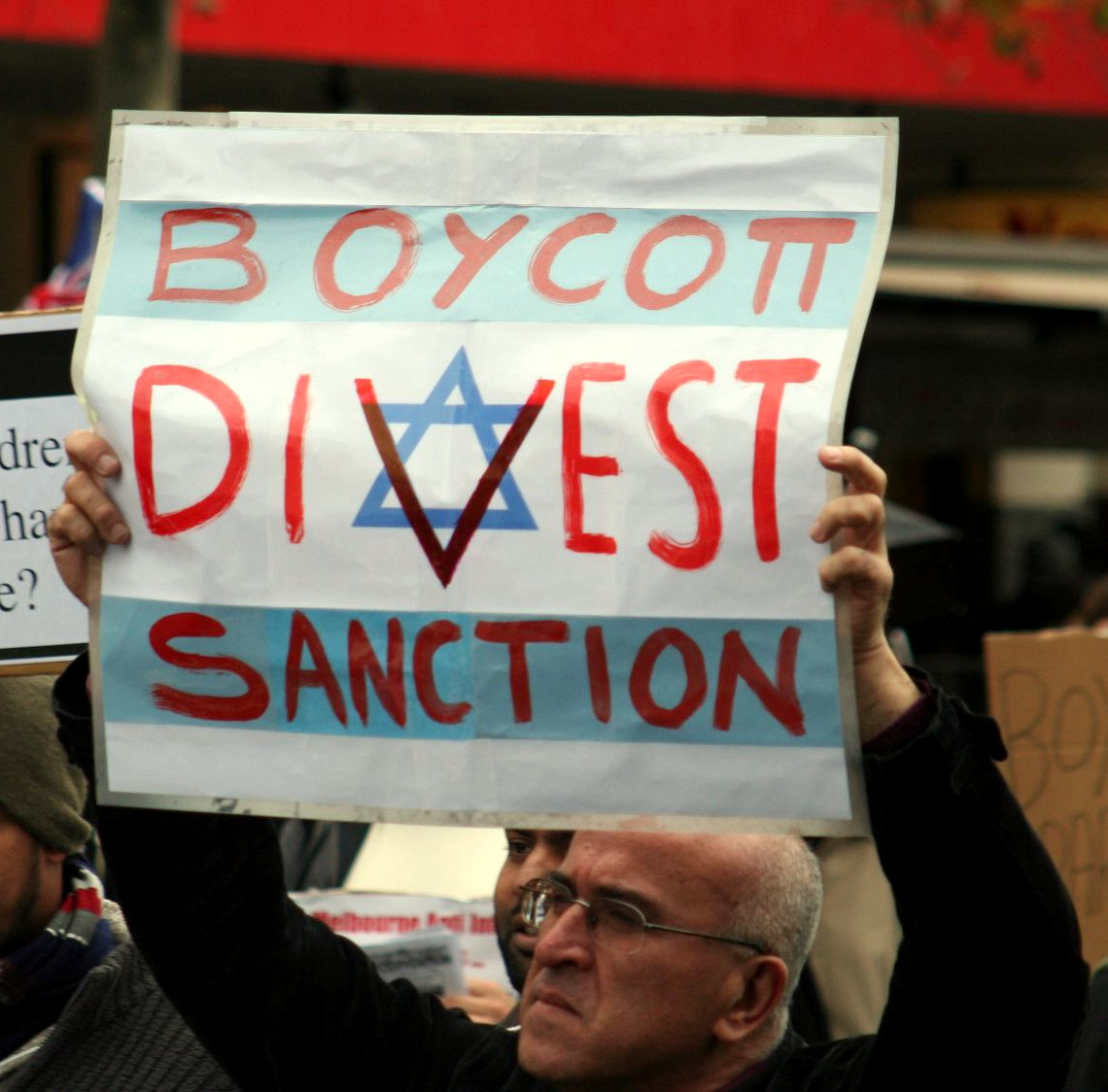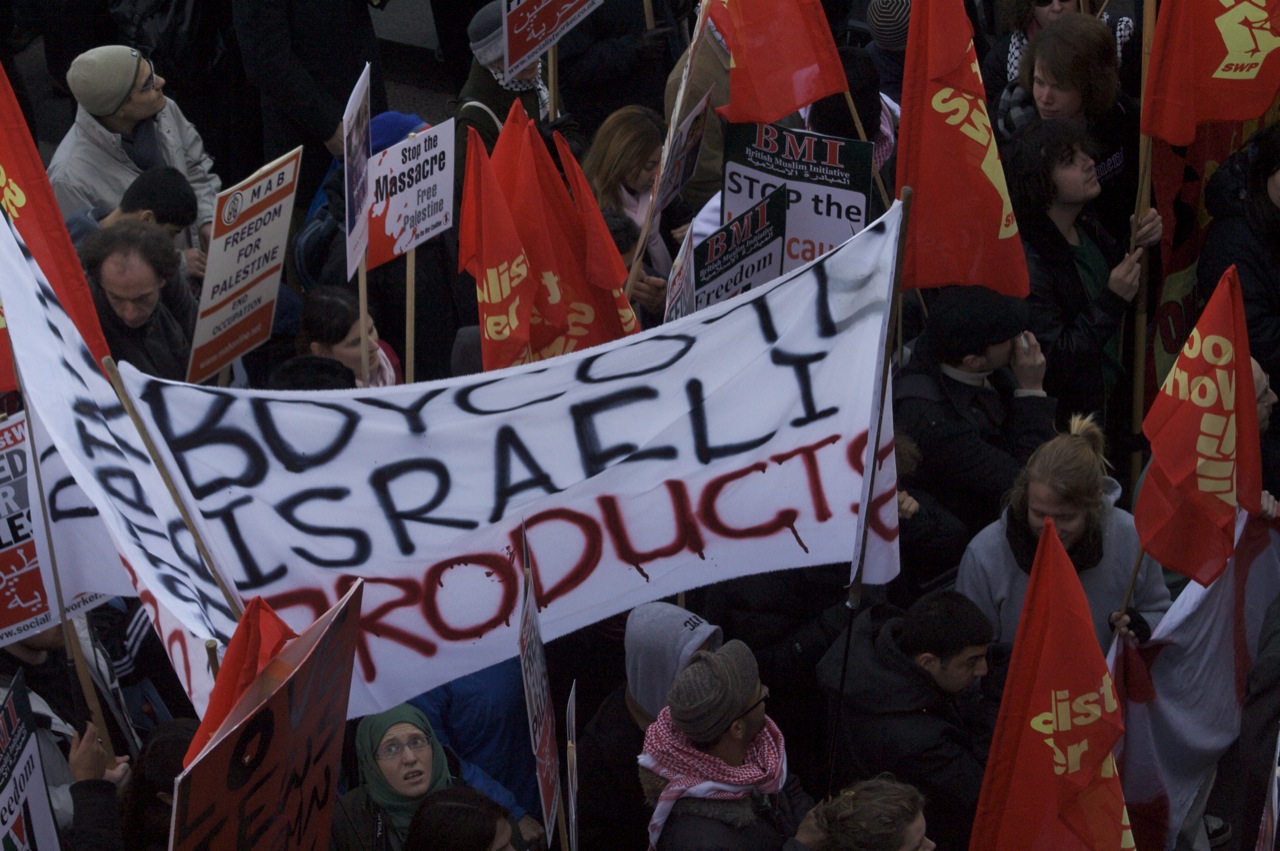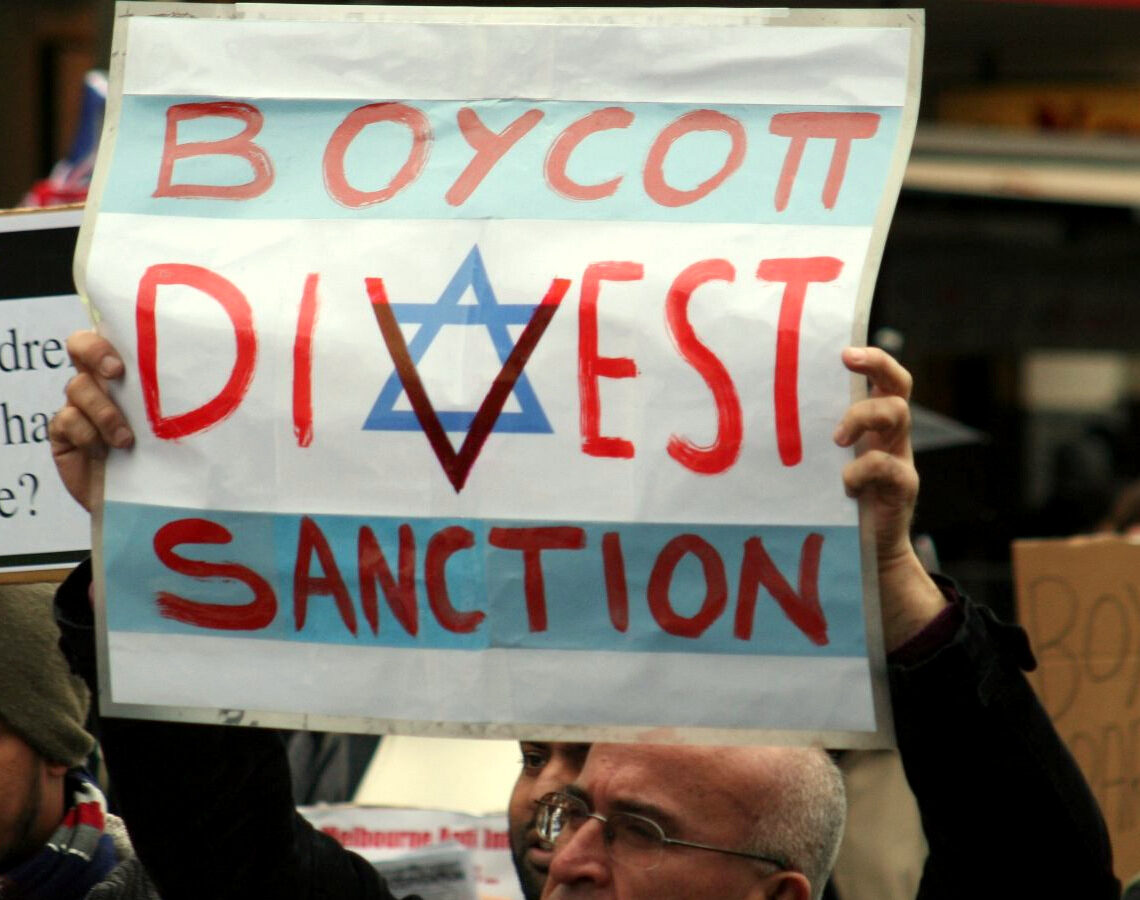
LONDON — Last week, without parliamentary debate or vote, the United Kingdom announced a controversial new law that looks to ban publicly-funded institutions from boycotting Israeli goods and services on political grounds — including student unions at publicly-funded universities, local councils and the National Health Service.
In a statement released on Feb. 17, the Cabinet Office of the U.K.’s Conservative government stated: “Town hall boycotts undermine good community relations, poisoning and polarizing debate, weakening integration and fueling anti-Semitism.”
“Locally imposed boycotts can roll back integration as well as hinder Britain’s export trade and harm international relationships,” it added.
A spokesman for Labour leader Jeremy Corbyn condemned the move, saying, “The Government’s decision to ban councils and other public bodies from divesting from trade or investments they regard as unethical is an attack on local democracy.”
“People have the right to elect local representatives able to make decisions free of central government political control. That includes withdrawal of investments or procurement on ethical and human rights grounds.”
“Ministers talk about devolution, but in practice they’re imposing Conservative Party policies on elected local councils across the board,” he added.
The new ruling will only be instituted in England, as other areas of the United Kingdom will fall under the remit of their devolved governments. In 2014, the Scottish government notably published a procurement notice addressed to Scottish councils, which “strongly discourages trade and investment from illegal settlements.”
Matthew Hancock, the Cabinet Office minister for the Conservative government, defended the new regulation: “The new guidance on procurement combined with changes we are making to how pension pots can be invested will help prevent damaging and counter-productive local foreign policies undermining our national security.”
Israeli boycott in the UK
The new legislation comes on the heels of growth in local boycotts over the years, in which the Boycott, Divestment and Sanctions movement has been picking up momentum and consolidating a growing support base in the U.K.
Leicester City Council passed a resolution in 2014 to boycott goods produced in Israeli settlements in the Occupied West Bank, followed by Tower Hamlets, Bristol and Swansea.
Veolia, a French multinational, also ended its involvements with Israeli settlements after local councils in London, Sheffield, Canterbury, East Sussex and Winchester ended contracts with the company that amounted to more than £10 billion ($14.2 billion).

The boycott movement is grounded in opposing the existence and expansion of Israeli settlements within the Occupied Palestinian Territory, which the majority of the international community has denounced as illegal.
Alongside deeming the settlements a violation of the Fourth Geneva Convention, international law also confers an obligation upon all state signatories — including the U.K. — to take all available measures to ensure that the provisions of the convention are respected.
However, Israel seems to enjoy a support base that grants it a longer leash than most, and the country has yet to face any severe penalties.
John Dugard, a South African professor of international law and a former U.N. Special Rapporteur of the Occupied Palestinian Territories, says it is useful to examine the new law through the boycotts against Apartheid South Africa.
“The U.K. government’s decision to prohibit public bodies from boycotting Israeli goods is strange, especially if one considers it in the perspective of the South African experience,” Dugard told MintPress News.
“No prohibition was placed on the boycott of South African goods during the Apartheid era. Yet Israel, whose practices and policies resemble those of Apartheid South Africa, is protected. Why? What is the difference?”
Erosion of local democracy
The move not only raises grave concerns as to the political leniency that is being granted to Israel, but the transfer of decision-making capabilities away from local mechanisms to the central government is also being labeled as a “gross attack on democratic freedoms” in the U.K.
“This is not a dispute about municipal rights; it’s about democracy. The Conservatives seek to shut down dissenting voices – and that should worry all of us,” wrote Owen Jones for The Guardian on the issue.
Andrew Smith of Campaign Against Arms Trade spoke to MintPress about the new law, saying, “This move is entirely hypocritical. The U.K. government is always stressing the importance of localism and accountability, but this is a direct attack on local democracy and decision-making.”
“Public money should be used for the public good, not to support companies that profit from war.”
“At the moment the focus may be on Israel, but if these changes go ahead it could impact the rights of all local people and campaign groups across England,” he added.
Confusion over policy details
Alongside a burgeoning outrage, there has been general confusion over the details of the new law upon the publishing of a Procurement Policy Note on Feb. 17.
The PPN and the new law are both apparently compatible with the pre-existing advice listed by the Foreign and Commonwealth Office, which currently advises against business investments in the Occupied Palestinian Territory, largely due to economic, legal and reputational risk.
Riya Hassan, the Europe Campaigns Officer with the Palestinian BDS National Committee, the coalition of Palestinian organizations that lead the BDS movement, spoke to MintPress about the details of the PPN.
“While it has spoken extensively about wanting to ‘ban’ the BDS movement, the documents published yesterday do not prevent councils from boycotting companies such as G4S over their role in human rights abuses,” she stated firmly.
“The government is deploying smoke and mirrors to give councils the false impression that they can no longer exclude companies that violate human rights from tender exercises.”
While Hassan sounded confident on the details of the legality behind public sector boycotting, she expressed concern that the latest announcement would still intimidate councils from joining the BDS movement.
“We’re seeking further legal advice, but it appears that it remains perfectly legal for councils and universities to take ethical stances that reflect the views of their communities and exclude companies that violate human rights from tender exercises,” she reiterated.
“Perhaps the public outrage over the government’s attack on local democracy hit a nerve in Westminster because the documents published do not ‘ban boycotts’ in the way that the government announced it wanted to.”
While BDS may still be able to navigate through loopholes to continue lobbying the private sector, the expected introduction of legislation affecting pension fund investments later in the year is anticipated to deal an even bigger blow to boycott efforts. More than 21,000 people signed a petition urging the central government not to override the investment decisions of local authorities.
Whether the “severe penalties” against public sector boycotting or the changes to pension fund investments damage the BDS movement or not, the move to outlaw activism against Israel is a worrying signal for the future of local campaigning in the U.K., and defies the hope that third-party United Nations member states will begin engaging with their responsibilities under international law regarding Israel any time soon.


